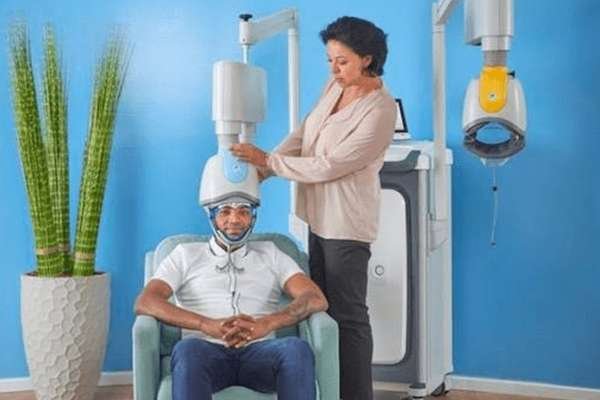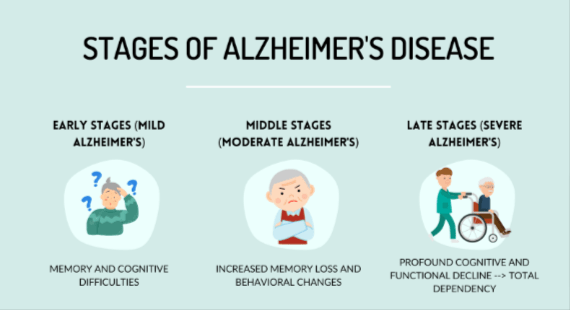Best Affordable Psychiatrist Clinic for Brain Stroke Treatment in Gurugram at Positive Mind Care
A brain stroke occurs when the blood supply to part of the brain is interrupted...

Positive Mind Care and Research Centre is a leading facility mental health care facility of Delhi -NCR, dedicated to helping individuals to overcome tobacco addiction and reclaim their joyful lives through a unique breakthrough technology called Deep TMS, which can reach significant depth and breadth of the brain and produce broad stimulation and functional modulation of targeted brain areas to cure the problem of addiction.
Deep TMS treatment features unique, patented coils that are fitted into a helmet, which is secured snugly to the patient’s head during the treatment. We are using BrainsWay’s therapy, which has been utilized in over 60 clinical trials worldwide. The company’s device has been FDA approved for the treatment of Major Depressive Disorder (MDD) since 2013, FDA cleared (De-Novo) for the treatment of Obsessive Compulsive Disorder (OCD) since 2018, FDA cleared as an aid for short-term Smoking Cessation since 2020, and has now received an expanded indication for Anxious Depression.
Alzheimer’s disease is a progressive and irreversible neurological disorder that primarily affects memory, cognitive function, and behavior. It is the most common cause of dementia, accounting for about 60-70% of all dementia cases. The exact cause of Alzheimer’s disease is not fully understood, but it is believed to involve a combination of genetic, environmental, and lifestyle factors.
Alzheimer’s disease is caused by the abnormal accumulation of proteins in the brain, specifically beta-amyloid plaques and tau tangles. These protein deposits disrupt normal brain function and lead to the loss of nerve cells and connections in critical brain regions.
Currently, there is no cure for Alzheimer’s disease, and its progression is usually gradual over time. Treatment aims to manage symptoms, improve quality of life, and support caregivers. Medications may be prescribed to temporarily alleviate some symptoms and slow down the progression of the disease in some cases.
Research is ongoing to better understand the disease’s underlying mechanisms and to develop more effective treatments and, ultimately, a cure. Early detection and intervention are crucial in managing Alzheimer’s disease and providing appropriate support and care for affected individuals and their families.
Approximately 1 in 9 people aged 65 years or older is said to be diagnosed with Alzheimer’s Disease.

The symptoms of Alzheimer’s disease typically develop slowly and worsen over time as the condition progresses. The disease affects various aspects of cognitive function, behavior, and daily living. The most common symptoms of Alzheimer’s disease include:
Memory loss: One of the earliest signs is difficulty remembering recent events, conversations, or newly learned information. Over time, long-term memory may also be affected.
Disorientation and confusion: Individuals with Alzheimer’s may become disoriented in familiar places or lose track of time, date, and even their location. They may have trouble recognizing family members and friends.
Difficulty with problem-solving and planning: People with Alzheimer’s may find it challenging to handle complex tasks, such as managing finances or following a recipe.
Language problems: Struggling to find the right words, repeating phrases, or having trouble understanding conversations can be indicative of Alzheimer’s.
Poor judgment and decision-making: Individuals may exhibit poor judgment, such as giving away money to strangers or wearing inappropriate clothing for the weather.
Changes in mood and personality: Alzheimer’s can lead to mood swings, anxiety, depression, and irritability. Some individuals may become withdrawn or exhibit changes in personality and behavior.
Loss of initiative and motivation: People with Alzheimer’s may lose interest in activities they once enjoyed and have difficulty initiating new activities.
It’s important to note that the symptoms of Alzheimer’s disease can vary from person to person, and some individuals may experience certain symptoms more prominently than others. In the early stages, memory problems and mild cognitive impairments are common, while in later stages, the cognitive decline becomes more severe and impacts everyday functioning.

Provides a convenient and flexible approach to treatment, allowing patients to receive care while maintaining their daily routines.
A non-invasive procedure that targets specific areas of the brain associated with depression. This innovative treatment option has shown promising results in reducing symptoms of MDD and is FDA approved.
A supportive and empathetic environment to express thoughts, emotions, and experiences, develop coping strategies, and gain insights to improve overall well-being.
Our center combines expert medical care with a compassionate and supportive environment, empowering individuals to reclaim their lives.
Cultivate awareness, reduce stress, and enhance overall well-being through meditation, yoga, and other practices to keep you grounded.
Our center combines expert medical care with a compassionate and supportive environment, empowering individuals to reclaim their lives.
Deep Transcranial Magnetic Stimulation (Deep TMS) is a non-invasive brain stimulation technique that has been studied as a potential treatment for various neuropsychiatric conditions, including smoking addiction. While the research in this area is still ongoing, Deep TMS has shown some promising results in helping individuals with smoking addiction. Here’s how Deep TMS may help in treating smoking addiction:
We at Positive Mind Care and Research Centre, a new generation mental health clinic, are dedicated to providing the highest quality care and research in the field of mental health. We take a positive and holistic approach to mental health, focusing on the individual as a whole and their unique needs and circumstances. We are committed to using evidence-based scientific treatment methods, conducting research, and providing education and outreach to the community. Remember that you are not alone, and we are here to help you on your journey towards betterment!
Learn more about how Positive Mind Care innovative TMS treatment technology can be effective in treating psychiatric disorders.
Learn more about how DEEP TMS treatment technology can be effective in treating neurological disorders.
A brain stroke occurs when the blood supply to part of the brain is interrupted...
Addiction is a serious and life-altering condition that can disrupt both the personal and professional...
Anxiety is a common mental health issue affecting millions of individuals globally. It manifests in...
Disclaimer:- The information provided on this website is for informational & educational purposes only and should not replace professional medical advice. Please consult with a qualified healthcare provider for personalized treatment recommendations.
Copyright © 2023. Positive Mind Care. All Rights Reserved